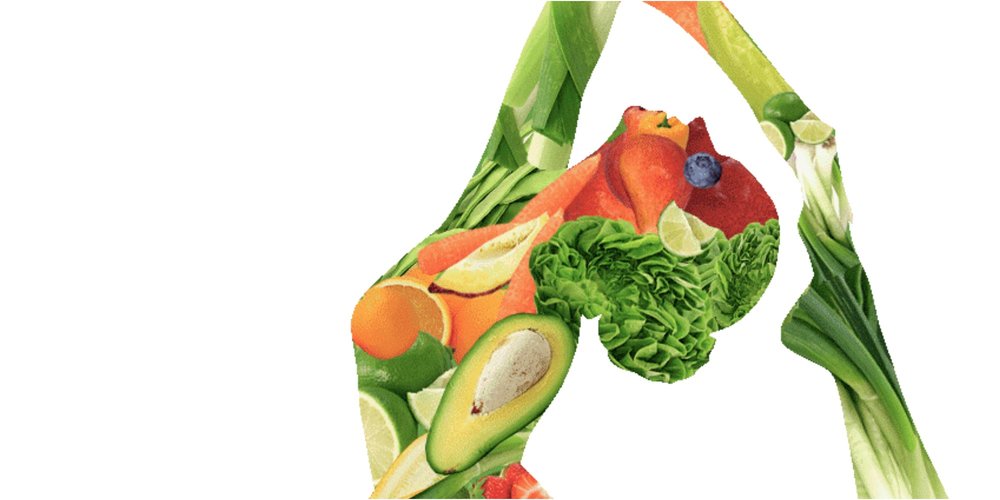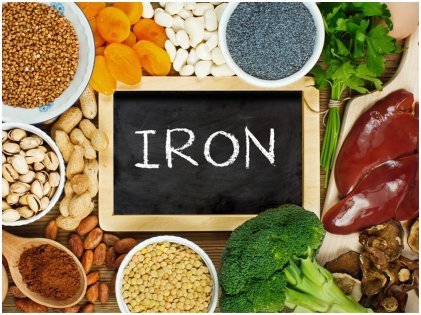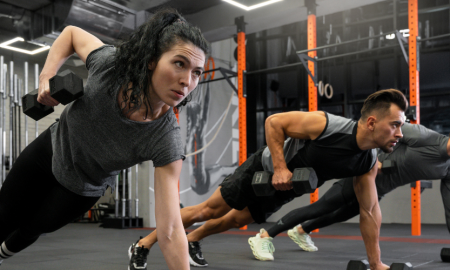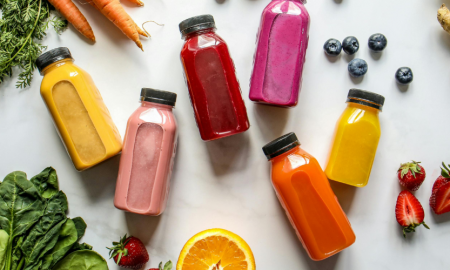
The Most Common Nutrient Deficiencies Found In Human Bodies And How To Get Rid Of Them

Thanks to the recent popularity of a healthy lifestyle, everybody is wanting to have a low-calorie diet that is also high in nutrients. However, in our endeavor to eat less we often miss out on critical nutrients that help our body to stay healthy and fit. In fact, it has been found that even people who are extremely health-conscious, often miss out on the most critical nutrition from their platter. Here are some of the most important nutrients.
Iron

Did you know that about 25% of the world’s population, suffers from iron deficiency? Iron is one of the key components of the blood cell and binds the hemoglobin and sends oxygen to the cells. It is more common among pre-schoolers and women who are menstruating owing to their monthly loss of blood. Since animal-based food has more iron content than a vegetarian diet, vegans and vegetarian people are more prone to iron deficiency. Less iron leads to fatigue, anemia, and also non-functioning of the brain. Leafy vegetables, beans, red meat, and shellfish contain a lot of iron. Include them in your daily diet for an iron-rich meal.
Iodine

Iodine is intrinsic for our thyroid gland, that is the origin of several of our important hormones. Unfortunately, about one-third of the world’s population suffer from iodine deficiency. Since thyroid glads have hormones that help in the well being of our bones, the growth of our body and also the development of our brain – its importance goes without saying. When the body faces iodine deficiency, the thyroid gland swells up and the condition is known as goiter. Often a person experiences breathlessness and sudden weight gain. Iodine is especially important for children as they may face retardation and other developmental issues if they do not have enough iodine. Fish, egg, seaweed, and dairy products are packed with the goodness of iodine.
Calcium

We can’t speak enough about the goodness of calcium. Calcium helps in the growth and development of our bones and our teeth. Neither more calcium nor a deficiency works well for the body. Too much calcium can make bones fragile, while less calcium can make our body function better. Our heart, muscles, and nerves do not do well when there is a lack of calcium. When our body faces a lack of calcium, osteoporosis happens and the weak bones result in often fractures and breaks. Dairy products, green veggies, and boned fish are some of the best sources of calcium.
Vitamin B 12

Though our body can not produce vitamin B12, it plays a very critical role in blood formation, brain functioning, and well-being of the nervous system. If we can not get enough vitamin B12 from food, we must get supplements. Since this vitamin is found mostly in animal-based food, mostly vegans and vegetarians are deficient in this vitamin. It has been found that about 80%-90% vegetarians have less amount of vitamin B 12 in their body then they should have. Shellfish, organic meat, eggs, milk products, etc, are a rich source of vitamin B12.
Magnesium

Just like calcium, magnesium is also important for good bone and dental health. Type 2 diabetes, osteoporosis, metabolic syndrome, heart disease – all these can happen due to lack of magnesium. Abnormal heart rate, muscle cramps, fatigue, migraine restless leg syndrome – can also happen when there is a lack of this nutrient in our body. An adult man should have 400 to 420 mg of magnesium while a woman should have 310-320 mg. Having whole grains, leafy vegetables, nuts, and dark chocolate can help one increase the magnesium level.
If your daily diet cannot give you the stipulated amount of these nutrients required for the body, then you must take supplements in order to make up for it. Often, we do not think supplements to be right for our body and avoid it, but if you are not taking the right kind of food, then supplements are a must. However, whatever you do, make sure you are consulting your doctor before taking any supplements.
More in Diet
-
`
Are Mono Diets Worth It – or Just a Dangerous Trend?
As summer brings on the pressure to slim down fast, the internet lights up with diet trends promising instant results. One...
August 3, 2025 -
`
Why Motivation Is Essential for Sustainable Fitness Success
Motivation isn’t something that shows up when it’s convenient—it’s something that needs to be built, shaped, and sustained. Many people struggling...
July 27, 2025 -
`
The Mystery of Human Body Parts That Science Still Can’t Solve
The human body is a patchwork of evolutionary choices, quirks, and mysteries. From skeletal structure to the tiniest gland, everything tells...
July 18, 2025 -
`
Why a Mediterranean Diet and Exercise Slow Bone Loss in Seniors
Bone health isn’t just a concern for the elderly—it’s something that starts to matter the moment the body begins to lose...
July 12, 2025 -
`
Want Better Memory? This Diet Could Help Keep Your Brain Sharp
Losing focus, memory lapses, or slower thinking—these aren’t just normal parts of aging. While cognitive changes do happen over time, lifestyle...
July 5, 2025 -
`
The Truth About Health Tracking Apps and Their Impact on Wellness
Scroll through social media or browse the App Store, and you’ll likely spot dozens of health tracking apps. They promise everything—from...
June 29, 2025 -
`
New Study Reveals Alzheimer’s Affects the Entire Body
Most people associate Alzheimer’s with memory loss and cognitive decline, assuming its impact stays confined to the brain. But new findings...
June 21, 2025 -
`
The One Simple Habit Mark Cuban Credits for His Success
Success doesn’t come from shortcuts or luck—it’s built on habits that stand the test of time. Mark Cuban, the outspoken billionaire,...
June 14, 2025 -
`
Thinking of a Detox Diet? Read This Before You Start
Detox diets continue to be one of the most talked-about trends in the wellness space. Whether it’s juice cleanses, tea plans,...
June 8, 2025









You must be logged in to post a comment Login